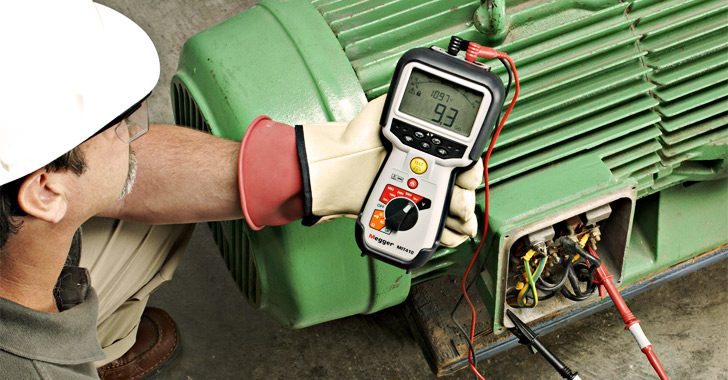

When DC voltage is applied to an insulation, the electric field stress gives rise to current conduction and electrical polarization. Consider an elementary circuit as shown in Figure 1 below,... Read more
The post 5 components of current drawn by the DC voltage testing of insulation appeared first on EEP - Electrical Engineering Portal.
Contamination caused insulator flashovers produce frequent outages in severely contaminated areas. Lines closer to the ocean are in more danger of becoming contaminated. Several countermeasures have been proposed to improve... Read more
The post 7 Methods To Avoid Insulator Flashovers appeared first on EEP - Electrical Engineering Portal.
A fault is not a natural occurrence. It is an unplanned event which occurs unexpectedly. Electrical faults in an electrical installation or piece of equipment may be caused by: Negligence –... Read more
The post Where do electrical faults occur the most? appeared first on EEP - Electrical Engineering Portal.
Generally speaking, the transformer requires less care compared to other electrical equipment. But, as I already stated in some of the earlier technical articles, transformer failures can cause a huge... Read more
The post Better understanding of transformer failures and maintenance necessity appeared first on EEP - Electrical Engineering Portal.
The conductivity of copper is 65% higher than that of aluminium which means that the conductor size of similarly rated cables is proportionately smaller. Correspondingly less expense is then incurred... Read more
The post What would be the best conductor material for electrical wires and cables appeared first on EEP - Electrical Engineering Portal.
Electricity and water do not form a happy partnership and so it is often necessary to “dry out” insulation. This may be done to remove surface moisture or perhaps to... Read more
The post Electricity and water do not form a happy partnership, do they? appeared first on EEP - Electrical Engineering Portal.
The low voltage switchgear involves many devices like power circuit breakers, MCBs, aux. relays, CTs, VTs etc. and of course at the end – enclosures (indoor or outdoor type). The frequency... Read more
The post Few good tips for low voltage switchgear maintenance and care appeared first on EEP - Electrical Engineering Portal.
You know that good insulation has high resistance and poor insulation relatively low resistance. The actual resistance values can be higher or lower, depending upon such factors as the temperature... Read more
The post Using Megger tester for these 3 types of insulation resistance tests appeared first on EEP - Electrical Engineering Portal.
This technical article provides general guidelines for high potential “Hi-Pot” DC testing of MV power cables. All tests made following cable installation and during the warranty period must be performed... Read more
The post Guidelines for high potential (Hi-Pot) DC testing of medium voltage cables appeared first on EEP - Electrical Engineering Portal.
The power factor test is a maintenance test used to determine the insulation system dielectric power loss by measuring the power angle between an applied AC voltage and the resultant... Read more
The post Performing power factor test on dry-type transformer during commissioning appeared first on EEP - Electrical Engineering Portal.
This technical article will try to shed some light on why and how electrical equipment fails and what’s happening before and during the failure of particular substation equipment like switchgear,... Read more
The post Why substation equipment fails and why it’s wise to think of that much before failure appeared first on EEP - Electrical Engineering Portal.
Although there are few common-sense rules that every electrical engineer follow when choosing the transformer type, it’s always a good idea to name the most important of them. This technical... Read more
The post Eight criteria you should consider when choosing the right MV/LV transformer type appeared first on EEP - Electrical Engineering Portal.
Due to mechanical damage, vibrations, (excessive) heat/cold, moisture/humidity, chemical influences and interactions and aging pinholes, cracks causes moisture and foreign matter to penetrate the surface of the insulation. They create... Read more
The post Electrical insulation testing – Often underestimated until things go really bad appeared first on EEP - Electrical Engineering Portal.
Electrical engineers working on project execution know that switchgear erection brings many challenges, no matter the voltage level. The switchgear cannot always be assembled in the factory and shipped to... Read more
The post Recommendations for the successful erection of medium voltage switchgear appeared first on EEP - Electrical Engineering Portal.
Each piece of electrical equipment on a distribution system has a probability of failing. When first installed, a piece of equipment can fail due to poor manufacturing, damage during shipping,... Read more
The post The most common failure modes of electrical equipment in distribution systems appeared first on EEP - Electrical Engineering Portal.